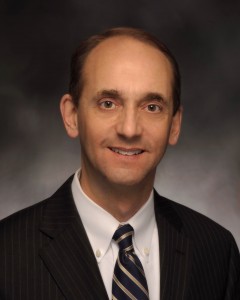JEFFERSON CITY, Mo. — Auditor Tom Schweich released an audit of the state’s 20 district recycling programs across Missouri today, calling for a lowering of tonnage fees, a re-examination of the program’s funding model and a “comprehensive review” from the Department of Natural Resources on how to more efficiently deliver the service.
The audit comes less than a week before the first meeting of the Joint Committee on Solid Waste Management District Operations, a committee formed last year by an amendment added to House Bill 28. The committee is tasked with filing a report and, if necessary, appropriate legislation in an attempt to streamline the state’s recycling programs.
The audit rates the overall performance of the Solid Waste Management Programs as “good” or one ranking below the top mark of “excellent.” The audit makes note of a few problems with the program, however.

The SWMP and their respective districts are funded primarily through tonnage fees at local landfills. A typical landfill pays $2.11 per ton to the local SWM district for recycling purposes. This fee is higher than most surrounding states for similar programs, including Kansas, Nebraska, Kentucky, Oklahoma and Tennessee.
Lisa McDaniel, Solid Waste Program Manager for Mid America Regional Council, said tonnage fees were “misleading.”
“Our tonnage fees might be higher than some states, but those states also often have other fees separate from that to fund these programs,” McDaniel said. “And those aren’t taken into account when you just compare tonnage fees.”
Indeed, the audit remarks that several states collect annual permit fees for landfills, which contribute to the programs, those specific amounts aren’t indicated. Missouri collects no such permit fee.
Finally, the audit addresses the same concerns raised in the Senate during the 2013 legislative session. Administrative costs in each SWM district vary wildly. The lowest administrative costs statewide were jut 7 percent of the total expenditures. The highest was nearly 50 percent, the statutory limit for administrative expenses.
McDaniel says this is because funds for each district are lumped into one large pot for administrative costs, and that things like community outreach and education programs, as well as other services provided, are funded directly by “administrative costs.”
“If we took the other services we fund through our administrative costs, if we took those out, our administrative costs for traditional things like rent for office space and salary would probably be closer to 20 percent,” McDaniel said. “But we run close to 50 percent because all of these costs are labeled under one pot.”
Other services funded through administrative money include technical assistance with local facilities, household hazardous waste removal and education and outreach, as well as the district’s local website, which McDaniel says gets more than 50,000 hits annually.
Also on target in the audit were the extra funds that individual districts seemed to have on reserve. The audit notes that, as of June 30, both the Kansas City area and St. Louis-Jefferson area had a combined reserve fund of $3.7 million. Both directors said this was a result of “timing.”
Dave Berger, St. Louis-Jefferson SWM district director told The Missouri Times that both his district and the Kansas City area district operated on a calendar fiscal year. Berger noted that the $2.4 million identified in the audit in St. Louis reserve funds would almost all be spent on grants, and that his operation was “in fact, significantly under funded.”
“It’s just a timing problem, for the state, June 30 is the end of the fiscal year but for us, that’s just when we are beginning to draw down those funds for the coming year,” Berger said. “By Oct. 1 we’ll be completing the process for giving out grant money, and that will likely be close to $2 million alone.”
This discrepancy is one not all lawmakers understand, Berger said.
“It’s kind of a general confusion, about what our money goes to and when we spend it,” Berger said. “But in reality we are very much lacking the funds we need to meet our demand, which is huge, and it’s something that the legislature needs to be educated about.”
McDaniel said she will likely be in attendance at the committee hearing next week, but will rely on individuals and organizations working with or benefiting from her district to speak on their behalf.
“We don’t lobby because we take state money, obviously,” McDaniel said. “But it’s also about what is effective. People in our communities have seen a benefit from these kinds of high quality recycling program and if they come and tell the legislature that they want them to stay as they are, it’s a much more powerful message than me coming and saying everything is fine.”
Collin Reischman was the Managing Editor for The Missouri Times, and a graduate of Webster University with a Bachelor of Arts in Journalism.








